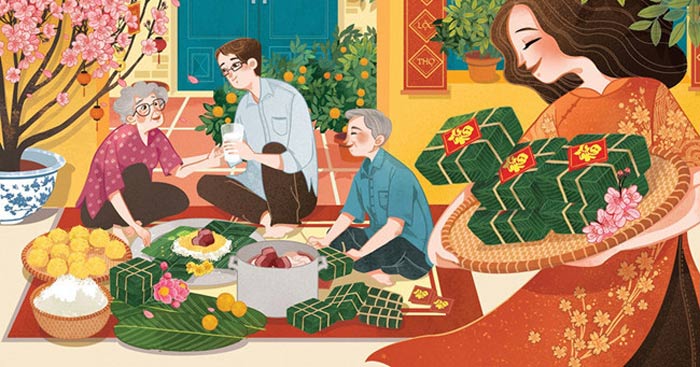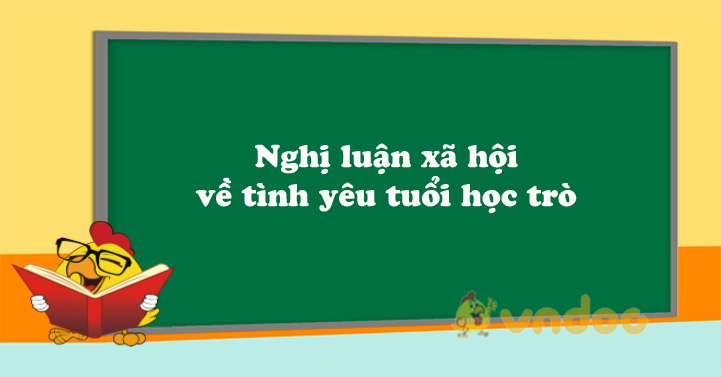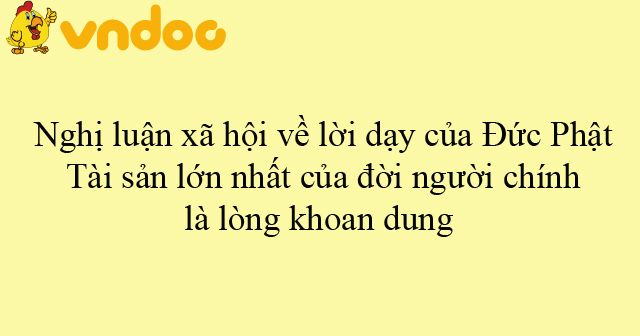|
ĐỀ SỐ 3 ««««« |
ĐỀ THI THỬ THPT QG NĂM HỌC 2020 Môn: Tiếng anh Thời gian làm bài: 60 phút, không kể thời gian phát đề |
Mark the letter A, B, C, or D on your answer sheet to indicate the word whose underlined part differs from the other three in pronunciation in each of the following questions.
Question 1. A. substantial B. initiate C. participant D. attention
Question 2. A. encourage B. entertain C. endanger D. envelop
Mark the letter A, B, C, or D on your answer sheet to indicate the word that differs from the other three in the position of primary stress in each of the following questions.
Question 3. A. uncertain B. arrogant C. familiar D. impatient
Question 4. A. passion B. escape C. prefer D. review
Mark the letter A, B, C, or D on your answer sheet to indicate the correct answer to each of the following questions.
Question 5. After two years of __________, the country’s economy is finally looking a lot healthier.
A. let-down B. demise C. overdraft D. recession
Question 6. He was offered the job thanks to his __________ performance during his job interview.
A. impressive B. impressively C. impression D. impress
Question 7. She __________ me a very charming compliment on my painting.
A. showed B. paid C. made D. took
Question 8. It gets __________ to understand what the professor has explained.
A. the more difficult B. difficult more and more
C. more difficult than D. more and more difficult
Question 9. __________, the young mother appeared visibly very happy after the childbirth.
A. Tired as she was B. She was tired
C. As tired D. Despite tired
Question 10. I should leave here. I don’t want to __________ my welcome.
A. give up B. go off C. run down D. wear out
Question 11. Mary is sixteen years old. She is __________ young to get married.
A. too B. so C. such D. enough
Question 12. When he retires at sixty, he’ll get a very good __________.
A. pay B. salary C. wage D. pension
Question 13. They asked me a lot of questions, __________ I couldn’t answer.
A. much of which B. both of them C. neither of which D. most of which
Question 14. He was ejected after committing five personal _________ in water sport game yesterday.
A. mistakes B. faults C. fouls D. errors
Question 15. They asked me _________ in Paris then.
A. if my mother was working B. was my mother working
C. if my mother had worked D. if was my mother working
Question 16. The players’ protests _________ no difference to the referee’s decision at all.
A. did B. made C. caused D. created
Question 17. _________ in the Middle East, oil became known as black gold because of the large profit it brought.
A. That when discovered B. Discovered
C. Discovering D. Which was discovered
Question 18. Tim was _________ to the court for jury duty, but took a doctor’s sick note with him and was excused.
A. pulled B. assembled C. summoned D. requested
Mark the letter A, B, C, or D on your answer sheet to indicate the word(s) CLOSEST in meaning to the underlined word(s) in each of the following questions.
Question 19. He drives me to the edge because he never stops talking.
A. steers me B. irritates me C. moves me D. frightens me
Question 20. Deforestation may seriously jeopardize the habitat of many species.
A. do harm to B. set fire to C. give rise to D. make way for
Mark the letter A, B, C, or D on your answer sheet to indicate the word(s) OPPOSITE in meaning to the underlined word(s) in each of the following questions.
Question 21. If she passes the exam, her parents will be walking on air.
A. disgusted B. promising C. upset D. hopeful
Question 22. Some vegetables are grown without soil and artificial light.
A. real B. natural C. genuine D. true
Mark the letter A, B, C, or D on your answer sheet to indicate the option that best completes each of the following exchanges.
Question 23.
- Hoa: “You‘ve got a beautiful garden! ”
-Lan: “ _____________________.”
A. Never mind B. You, too
C. Thanks for your compliment D. Don’t mention it
Question 24.
- Nam: “Has an annoucement been made about the eight o’clock flight to Ho Chi Minh City?”
-Phong: “_________________”
A. Not yet B. Yes, it is eight o’clock
C. I don’t think so D. Sorry, I don’t
Read the following passage and mark the letter A, B, C, or D on your answer sheet to indicate the correct word or phrase that best fits each of the numbered blanks from 25 to 29.
THE PERFORMING ARTS
In the past, British children were frequently encouraged to try out their performing skills for the benefit of adults. They did this by reading aloud, acting or (25) _________ a musical instrument. As they (26) _________ up, they were taken to public places of entertainment - the theatre, opera, circus or ballet. They looked forward to these occasions with great (27) _________ and would remember and discuss what they had seen for many weeks afterwards. But nowadays television and computers (28) _________ an endless stream of easily available entertainment, and children quickly accept these marvelous (29) _________ as a very ordinary part of their everyday lives.For many children, the sense of witnessing a very special live performance is gone forever.
Question 25. A. handling B. controlling C. doing D. playing
Question 26. A. developed B. brought C. advanced D. grew
Question 27. A. sensation B. action C. thrill D. excitement
Question 28. A. send B. supply C. stock D. store
Question 29. A. designs B. inventions C. exhibits D. appearances
Read the following passage and mark the letter A, B, C, or D on your answer sheet to indicate the correct answer to each of the questions from 30 to 34.
Magazines have been a major growth area of popular publishing in the 20th century. Specialist magazines cater to every imaginable field and activity. In the United Kingdom, over 12,000 periodicals, magazines, bulletins, annuals, trade journals, and academic journals are published on a regular basis. There are some 40 women’s magazines and over 60 dealing with particular sports games, hobbies, and pastimes. Although some US magazines, such as The Saturday Evening Post, has succumbed to the circulations, The Reader’s Digest over 16 million, the National Geographic over 10 million. For many people, magazines have been the most available and widely used form of continuing education, providing information about history, geography, literature, science, and the arts, and as well as guidance on gardening, cooking, home decorating, financial management, psychology, even marriage and family life.
Until the rise of television, magazines were the most available form of cheap, convenient entertainment in the English-speaking world. Radio served a similar function, but it was more limited in what it could do. Magazines and television, however, both address the more powerful visual sense. During the third quarter of the 20th century, coincident with a dramatic rise in the popularity of television, many general-interest, especially illustrated magazines went out of business. The shift in attention of a mass audience from reading such magazines to watching television has been a major factor in this decline, but it is an implicit tribute to the older genre that its programs are generally organized in a single format and content.
Question 30. According to the passage, which of the following magazines is no longer printed?
A. The Saturday Evening post B. The Reader’s Digest
C. The Nation D. The National Geographic
Question 31. Which of the following does the author describe as limited in what it could do?
A. radio B. magazines C. movies D. television
Question 32. The word “succumbed” means _____________.
A. set up for B. brought up to C. taken up by D. given in to
Question 33. What does the author say about mass audiences?
A. They have little influence on communication in the 20th century.
B. They have gone out of business.
C. They get information about gardening and psychology from radio.
D. They have shifted their attention from magazines to television.
Question 34. The passage mainly discusses ____________.
A. the rise and fall of the radio business.
B. the growth and decline of magazines in the 20th century.
C. magazines and continuing education.
D. the decline of international circulation.
Read the following passage and mark the letter A, B, C, or D on your answer sheet to indicate the
correct answer to each of the questions from 35 to 42.
The Native American peoples of the north Pacific Coast created a highly complex maritime culture as they invented modes of production unique to their special environment. In addition to their sophisticated technical culture, they also attained one of the most complex social organizations of any nonagricultural people in the world.
In a division of labor similar to that of the hunting peoples in the interior and among foraging peoples throughout the world, the men did most of the fishing, and the women processed the catch. Women also specialized in the gathering of the abundant shellfish that lived closer to shore. They collected oysters, crabs, sea urchins, abalone, and clams, which they could gather while remaining close to their children. The maritime life harvested by the women not only provided food, but also supplied more of the raw materials for making tools than did fish gathered by the men. Of particular importance for the native tool than did the fish gathered by the men. Of particular made from the larger mussel shells, and a variety of cutting edges that could be made from other marine shells.
The women used their tools to process all of the fish and marine mammals brought in by the men. They cleaned the fish, and dried vast quantities of them for the winter. They sun-dried fish when practical, but in the rainy climate of the coastal area they also used smokehouses to preserve tons of fish and other seafood annually. Each product had its own peculiar characteristics that demanded a particular way of cutting or drying the meat, and each task required its own cutting blades and other utensils.
After drying the fish, the women pounded some of them into fish meal, which was an easily transported food used in soups, stews, or other dishes to provide protein and thickening in the absence of fresh fish or while on long trips. The women also made a cheese-like substance from a mixture of fish and roe by aging it in storehouses or by burying it in wooden boxes or pits lined with rocks and tree leaves.
Question 35. Which aspect of the lives of the Native Americans of the north Pacific Coast does the passage mainly discuss?
A. Methods of food preservation
B. How diet was restricted by the environment
C. The contributions of women to the food supply
D. Difficulties in establishing successful farms
Question 36. The word “unique” in the first paragraph is closest in meaning to ______________.
A. comprehensible B. productive C. intentional D. particular
Question 37. It can be inferred from paragraph 1 that the social organization of many agricultural peoples is __________.
A. more complex than that of hunters and foragers
B. less efficient than that of hunters and foragers
C. more widespread than that of hunters and foragers
D. better documented than that of hunters and foragers
Question 38. According to the passage, what is true of the “division of labor” mentioned in paragraph 2?
A. It was first developed by Native Americans of the north Pacific Coast.
B. It rarely existed among hunting
C. It was a structure that the Native Americans of the north Pacific Coast shared with many other peoples.
D. It provided a form of social organization that was found mainly among coastal peoples.
Question 39. All of the following are true of the north Pacific coast women EXCEPT that they ________.
A. were more likely to catch shellfish than other kinds of fish
B. contributed more materials for tool making than the men did
C. sometimes searched for food far inland from the coast
D. prepared and preserved the fish
Question 40. The word “They” in paragraph 3 refers to ____________.
A. women B. tools C. mammals D. men
Question 41. The Native Americans of the north Pacific Coast used smokehouses in order to __________.
A. store utensils used in food preparation
B. prevent fish and shellfish from spoiling
C. have a place to store fish and shellfish
D. prepare elaborate meals
Question 42. All of following are true of the cheese-like substance mentioned in paragraph 4 EXCEPT that it was _________.
A. made from fish B. not actually cheese
C. useful on long journeys D. made in a short period of time
Mark the letter A, B, C, or D on your answer sheet to indicate the underlined part that needs correction in each of the following questions.
Question 43. It is (A) interested (B) to compare the early stylized art forms (C) of ancient civilizations (D) with the modem abstract forms of art.
Question 44. It is (A) generally believed that Thomas Jefferson was (B) the one who had researched and (C) wrote the Declaration of Independence during the months (D) prior to its signing in July 1776.
Question 45. (A) Because the highway system (B) was built 40 years ago, (C) most of the roads now need (D) to repair.
Mark the letter A, B, C, or D on your answer sheet to indicate the sentence that is closest in meaning to each of the following questions.
Question 46. He took the food eagerly because he had eaten nothing since dawn.
A. He had eaten nothing since dawn although he took the food eagerly.
B. The food was taken at dawn and he had nothing to eat then.
C. He had eaten something before but he took the food eagerly.
D. Having eaten nothing since dawn, he took the food eagerly.
Question 47. It is expected that tax increases will be announced in tomorrow’s budget statement.
A. Tax increases are expected to be announced in tomorrow’s budget statement.
B. It is expected that people will announce in tomorrow budget tax increases.
C. In tomorrow’s budget statement tax increases are expected to announce.
D. Hope that they will announce tax increases in tomorrow’s budget statement.
Question 48. Our parents join hands to give us a nice house and a happy home.
A. Our parents take us by the hand and lead us into a nice house and a happy home.
B. Our parents hold our hands when they give us a nice house and a happy home.
C. Our parents work together to give us a nice house and a happy home.
D. Our parents shake hands when they give us a nice house and a happy home.
Mark the letter A, B, C, or D on your answer sheet to indicate the sentence that best combines each pair of sentences in the following questions.
Question 49. She was irritated by her husband’s lack of punctuality. She left him.
A. Being irritating by her husband’s lack of punctuality, she left him.
B. She left her husband because of her irritation with his lack of punctuality.
C. Irritated by her husband, she punctually left him.
D. Irritated with her husband’s lack of punctuality, she left him.
Question 50. The company director decided to raise the workers’ wages. He did not want them to leave.
A. The company director decided to raise the workers’ wages in order not to want them to leave.
B. The company director decided to raise the workers’ wages though he wanted them to leave.
C. The company director decided to raise the workers’ wages so that he did not want them to leave.
D. The company director decided to raise the workers’ wages because he did not want them to leave.
Đáp án
|
1-C |
2-D |
3-A |
4-D |
5-A |
6-C |
7-A |
8-A |
9-C |
10-B |
|
11-A |
12-B |
13-B |
14-D |
15-B |
16-A |
17-D |
18-A |
19-A |
20-A |
|
21-A |
22-B |
23-A |
24-B |
25-C |
26-D |
27-C |
28-C |
29-B |
30-A |
|
31-B |
32-A |
33-B |
34-C |
35-B |
36-C |
37-C |
38-C |
39-A |
40-A |
|
41-A |
42-D |
43-B |
44-A |
45-D |
46-D |
47-C |
48-A |
49-B |
50-C |


.jpg)
.jpg)

